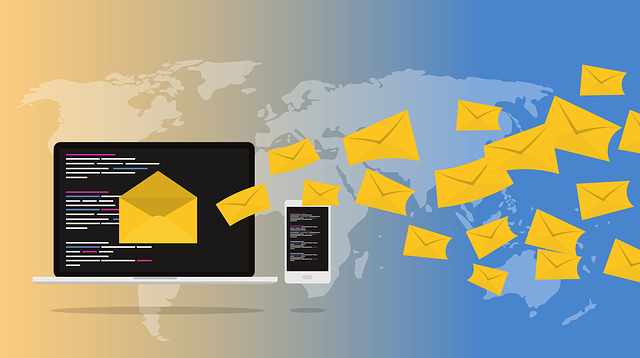Introduction
In digital marketing, email marketing stands as a stalwart strategy that has consistently delivered results for businesses. It's a powerful tool for reaching and engaging audiences, building brand loyalty, and driving conversions. In this comprehensive article, we will explore what email marketing is, discuss essential email marketing tools, provide insights into how to do email marketing effectively, and enumerate the myriad advantages it offers to businesses.
What is Email Marketing?
Email marketing is a digital marketing strategy that involves sending targeted emails to a group of recipients with the aim of promoting products, services, or delivering valuable content. It is one of the most direct and cost-effective methods for connecting with your audience, building relationships, and achieving marketing goals.
Email Marketing Tools
Effective email marketing relies on a set of tools and platforms designed to simplify the process. Here are some essential email marketing tools:
Email Service Providers (ESPs): ESPs like MailChimp, Constant Contact, and SendinBlue offer features such as email list management, campaign creation, and analytics tracking.
Marketing Automation Platforms: Tools like HubSpot and Marketo enable businesses to automate email campaigns, segment audiences, and personalize content based on user behavior.
Email Design Software: Tools like Canva and Adobe Spark help in creating visually appealing email templates and graphics.
Email List Building Tools: OptinMonster and Sumo are examples of tools that help capture email addresses through pop-ups and opt-in forms.
Analytics Tools: Google Analytics and Email Analytics provide insights into email open rates, click-through rates, and conversion metrics.
Also Read
· Video Marketing: Strategies, Statistics, and Benefits
· Video Marketing Jobs for Freelancers on Heuristic Heights
How to Do Email Marketing Effectively
To harness the power of email marketing, follow these steps:
Build and Segment Your Email List: Start by collecting email addresses from interested individuals. Segment your list to send targeted emails based on demographics, behavior, or interests.
Create Engaging Content: Craft compelling email content that resonates with your audience. Use concise, attention-grabbing subject lines, and provide value through informative articles, promotions, or offers.
Personalization: Personalize your emails by addressing recipients by their names and tailoring content to their preferences and previous interactions.
Mobile Optimization: Ensure that your emails are mobile-friendly, as a significant portion of email opens occurs on mobile devices.
A/B Testing: Experiment with different email elements, such as subject lines, content, and visuals, to identify what resonates best with your audience.
Automation: Implement automation to send triggered emails, such as welcome series, abandoned cart reminders, and follow-ups based on user behavior.
Compliance with Regulations: Adhere to email marketing regulations, such as the CAN-SPAM Act, by including unsubscribe links and contact information in your emails.
Monitor and Analyze: Regularly review email performance metrics to track open rates, click-through rates, and conversions. Use these insights to refine your email marketing strategy.
Advantages of Email Marketing
Email marketing offers numerous benefits to businesses, making it an indispensable part of their marketing arsenal. Here are some key advantages:
Cost-Effective: Email marketing is one of the most cost-effective marketing channels, with a high return on investment (ROI).
Direct Communication: Emails allow you to directly reach your audience, fostering one-to-one communication and building relationships.
Targeted Marketing: Segmenting your email list enables you to send highly relevant content to specific groups, increasing engagement.
Automation: Automation tools streamline email campaigns, allowing you to deliver timely messages without manual intervention.
Easy Tracking and Analytics: You can easily track email performance metrics, such as open rates and click-through rates, and use this data to optimize campaigns.
Personalization: Email marketing allows for personalized content, making recipients feel valued and increasing conversion rates.
Brand Consistency: Maintain consistent branding across all your email communications, reinforcing brand identity.
Increased Traffic: Email marketing can drive traffic to your website, blog, or e-commerce platform, increasing opportunities for conversions.
Builds Trust and Credibility: Regular, valuable email content helps build trust with your audience and positions your brand as an industry authority.
Highly Measurable: Email marketing offers precise metrics that help assess the effectiveness of campaigns, making it easy to refine strategies for better results.
Conversion Optimization: Effective email marketing strategies can lead to higher conversion rates, making it a valuable tool for sales and lead generation.
Conclusion
Email marketing is a versatile and powerful tool for businesses seeking to connect with their audience, drive conversions, and build lasting relationships. By understanding the fundamentals of email marketing, employing the right tools, and following best practices, businesses can harness the full potential of this digital marketing strategy. With its cost-effectiveness, high ROI, and ability to deliver personalized, targeted content, email marketing continues to be a cornerstone of successful marketing campaigns in the digital age. Whether you're a small business owner or a marketing professional, email marketing should be a key component of your marketing strategy.

